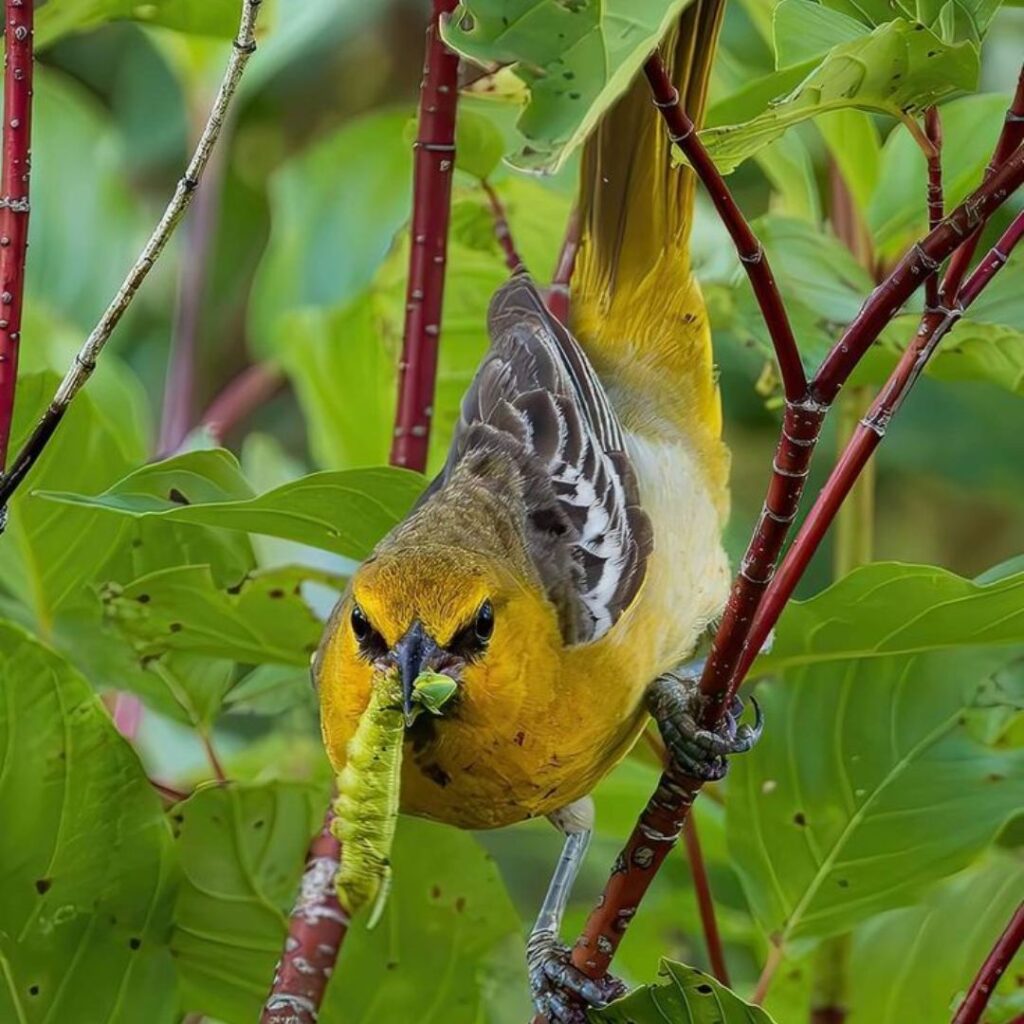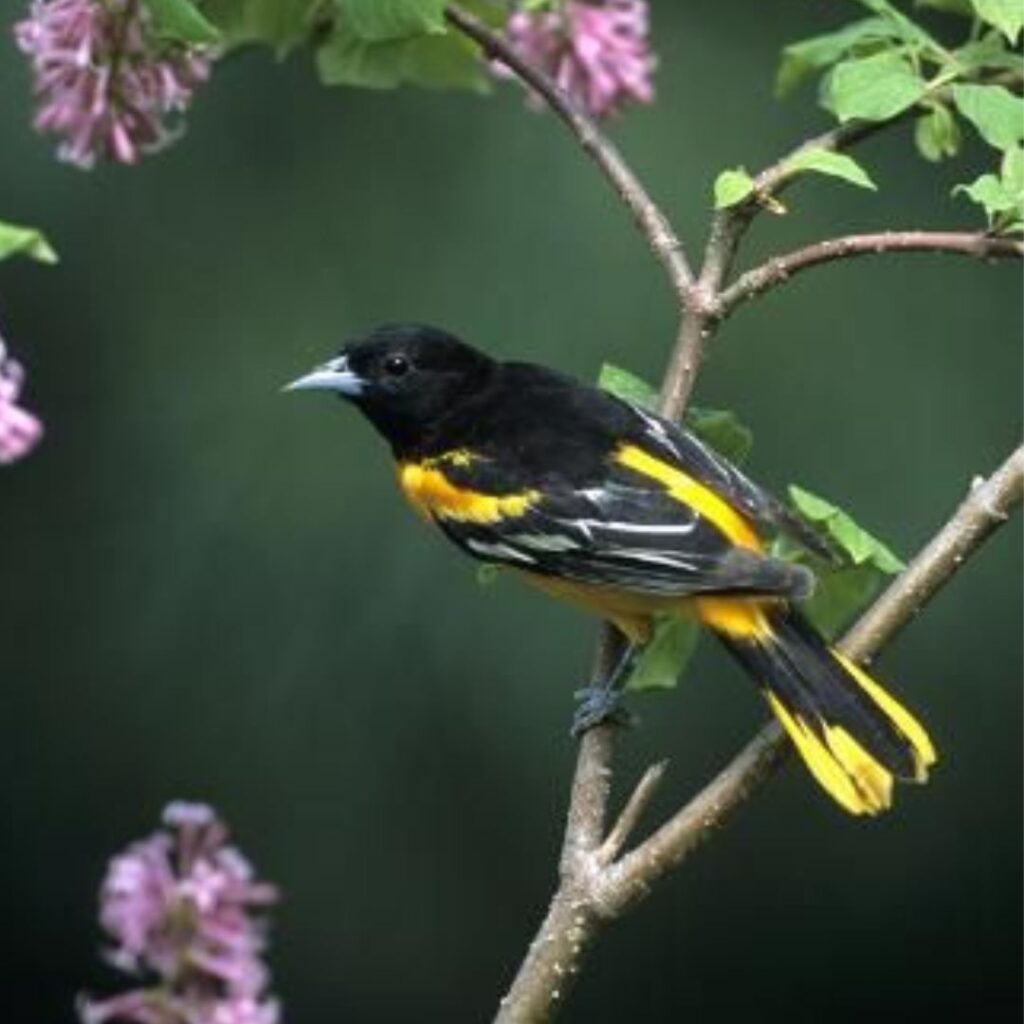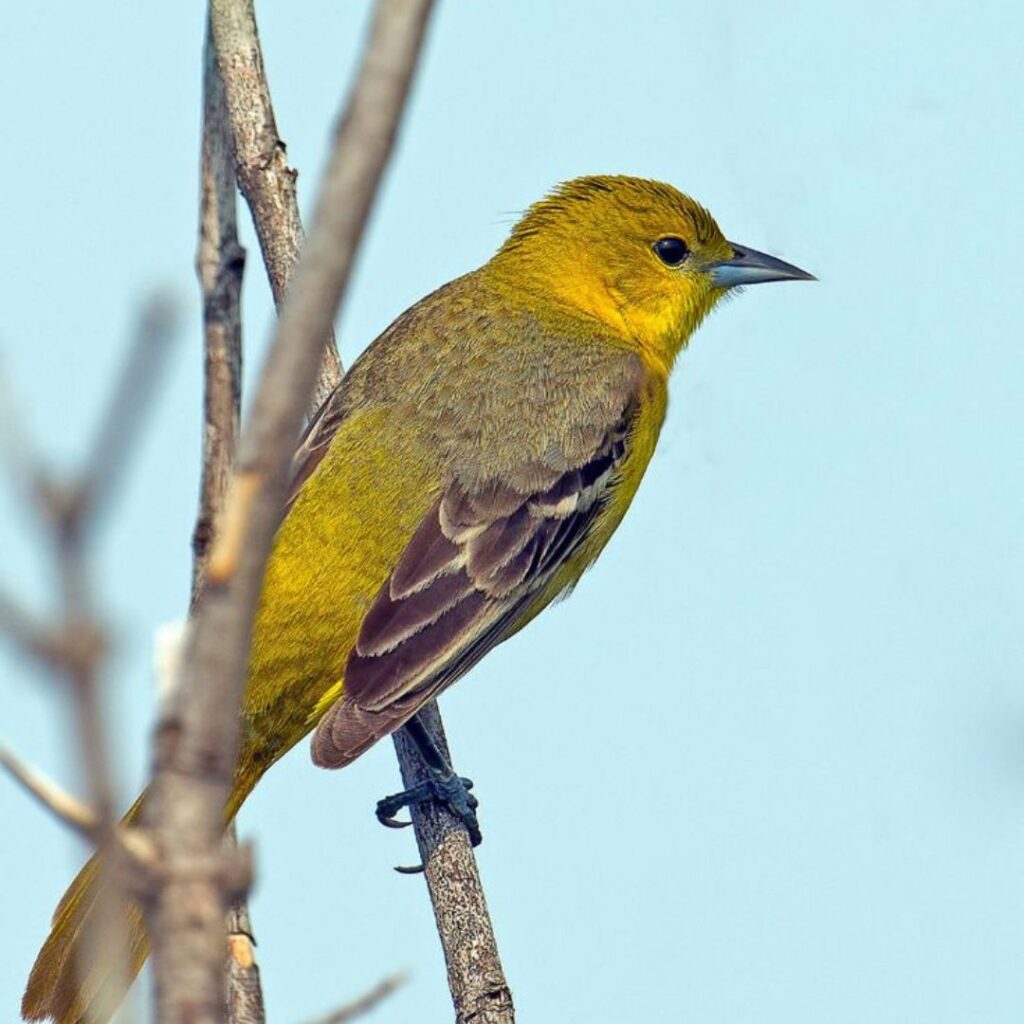Birdwatchers often find themselves puzzled when distinguishing between the Orchard Oriole and the Baltimore Oriole. These two stunning birds share many similarities, but keen observers can spot their unique features. Let’s explore the key differences between these colorful cousins and learn how to identify them in the wild.
Also Read: What is the Difference Between Birding and Bird Watching?

Size and Shape
The Orchard Oriole is the smaller of the two species. It measures about 6-7 inches in length, while the Baltimore Oriole stretches to 7-8 inches. Both birds have a slender build and a pointed beak, but the Baltimore Oriole appears slightly more robust.
Color Patterns
Male Orchard Orioles sport a deep chestnut-red body with a black head and back. Their female counterparts have a yellowish-green plumage. In contrast, male Baltimore Orioles boast a bright orange body with a black head and wings. Female Baltimore Orioles display a muted yellow-orange color with grayish wings.
Habitat Preferences
As their name suggests, Orchard Orioles favor open woodlands, orchards, and areas with scattered trees. Baltimore Orioles prefer deciduous forests, parks, and suburban areas with tall trees. Both species can be found in similar regions, but their specific habitat choices may differ.

Nesting Habits
Orchard Orioles build cup-shaped nests using fine grass and plant fibers. They often place these nests in the fork of a tree branch. Baltimore Orioles, however, construct distinctive hanging pouch nests made from plant fibers and string. These nests typically dangle from the outer branches of trees.
Feeding Behavior
Both oriole species enjoy a diet of insects, fruits, and nectar. Orchard Orioles tend to forage more actively among leaves and branches, while Baltimore Orioles may be more likely to visit backyard feeders offering fruit or nectar.
Song and Call
The Orchard Oriole’s song consists of a series of whistled notes that sound hurried and chattery. Baltimore Orioles produce a flutier, more melodious whistle that rises and falls in pitch.

Migration Patterns
Orchard Orioles typically arrive at their breeding grounds later in spring and depart earlier in fall compared to Baltimore Orioles. This shorter breeding season reflects their preference for warmer climates.
Conservation Status
Both species face challenges due to habitat loss and climate change. However, the Orchard Oriole is considered more vulnerable, with its population showing a slight decline in recent years. Baltimore Orioles have maintained relatively stable numbers.
Attracting Orioles to Your Yard
To attract both species, consider planting native fruit-bearing trees and offering nectar feeders. Baltimore Orioles may be more likely to visit feeders, while Orchard Orioles might prefer natural food sources.

Also Read: Backyard Birds of Maryland
Conclusion
While Orchard Orioles and Baltimore Orioles share many traits, their distinct features make them unique and fascinating birds to observe. By understanding their differences in size, color, habitat preferences, and behavior, birdwatchers can enhance their ability to identify and appreciate these beautiful orioles in the wild.
Remember, patience and keen observation skills are key to distinguishing between these two oriole species. Happy birdwatching!
Pingback: 6 Birds Similar to Red-Winged Blackbird